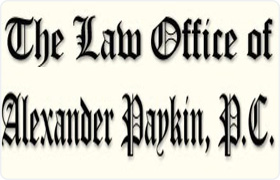Mineola Real Estate Lawyer, New York, page 5
Sponsored Law Firm
-
 x
x

Click For More Info:
-
The Law Office of Alexander Paykin, P.C.
350 5Th Ave Fl 59 New York, NY 10118» view mapReal Estate Reliable. Dependable. Accessible.
Whether you are buying, selling, renting, or refinancing your house, our experienced legal team will strongly advocate for you at each and every step of the process.
800-747-9261
Karl Brodzansky
Accident & Injury, Divorce & Family Law, Estate, Real Estate
Status: In Good Standing Licensed: 42 Years
Hayley Greenberg
Lawsuit & Dispute, Immigration, Divorce & Family Law, Real Estate
Status: In Good Standing
Stephen G. Limmer
Commercial Leasing, Dispute Resolution, Arbitration, Administrative Law
Status: In Good Standing Licensed: 53 Years
James A. Bradley
Land Use & Zoning, Communication & Media Law, Contract, Banking & Finance
Status: In Good Standing Licensed: 51 Years
William A. Ackerman
Commercial Leasing, Dispute Resolution, Arbitration, Collaborative Law
Status: In Good Standing Licensed: 66 Years
Christopher T. Cafaro
Construction, Labor Law, Products Liability, Medical Malpractice
Status: In Good Standing Licensed: 36 Years
Robert J. Valli
Real Estate, Litigation, International, Employment
Status: In Good Standing Licensed: 34 Years
Jean M. Kestel
Real Estate, Estate, Wills & Probate, Commercial Real Estate
Status: Retired Licensed: 40 Years
Marie Elena R. Puma
Real Estate, Trusts, Estate Planning, Elder Law
Status: In Good Standing Licensed: 33 Years
 Alexander Paykin New York, NY
Alexander Paykin New York, NY AboutThe Law Office of Alexander Paykin, P.C.
AboutThe Law Office of Alexander Paykin, P.C. Practice AreasSpecializations
Practice AreasSpecializations
